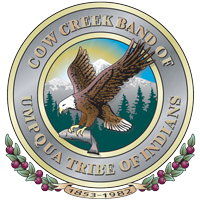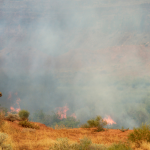Ready your family for disasters and emergencies with this plan
September is National Preparedness Month, and the Cow Creek Band of Umpqua Tribe of Indians encourages area residents to take time to prepare for potential disasters and other emergencies.
The annual observance began in 2004 to raise awareness about the importance of readying yourself, loved ones and your community for emergencies. This year’s theme is “A Lasting Legacy,” and focuses on preparing yourself and your family today, creating a legacy of preparedness and safety for future generations.
Some of the risks we face in the Umpqua Valley and Douglas County include:
• Wildfire
• Extreme weather
• Medical and health emergencies, such as COVID-19
• Resource shortages
• Earthquakes (Cascadia Subduction Zone)
• Floods
If a natural or human-caused disaster strikes, you might have to survive on your own for a few days or longer, which means you will need to have your own food, water, and other supplies, according to the Federal Emergency Management Agency’s ready.gov website.
To prepare for disasters and other emergencies, individuals and families should have a communication and reunification plan; at least two weeks’ supply of food and water at home for each person in the household; and a portable evacuation kit in case you need to evacuate your home on short notice.
Make a portable emergency supply and evacuation kit by storing items in airtight plastic bags in easy-carry containers such as duffel bags or plastic bins. A basic evacuation/survival kit should include:
• Copies of important documents, plus family and emergency contact information
• Food and water for at least three days (one gallon of water per person per day)
• Flashlight, first aid kit, tools
• Cellphone and chargers
• Medications for yourself and family members
• Toilet paper and personal hygiene items
• Battery-powered or hand-crank radio (NOAA weather radio)
• Emergency blankets and/or sleeping bags
• Maps of the local area with key locations identified
• Extra cash
Emergency food rations should include canned food, dry mixes and other foods that do not need refrigeration, cooking, water, or special preparation. Pre-packaged backpacking meals, MRE’s (Meals Ready to Eat), and other dehydrated foods with a long shelf life are good choices. Remember to check and update your kit regularly to rotate out expired supplies. Don’t forget pets, seniors, infants, and individuals with special needs while planning.
Finally, sign up for emergency alerts from local authorities and encourage your friends and family to do the same.
For more information, visit the ready.gov website or the Oregon Department of Emergency Management’s Two Weeks Ready website.





